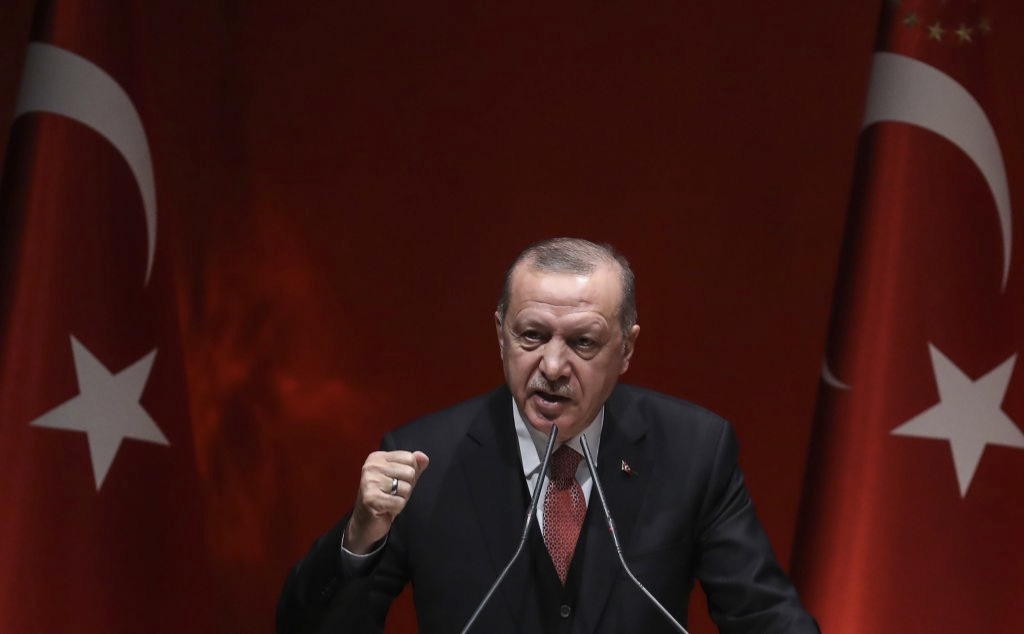
Everyone in Turkey, in its region and in countries with interests or concerns about Turkey's political future, probably agree that presidential and parliamentary elections this spring will be the most important for every nation involved. To maximize the opportunity for the Turkish public to come to the polls, after calculating external factors such as Muslim Hajj pilgrimage, a religious holiday and university entrance exams, President Recep Tayyip Erdoğan brought forward the election date from an originally scheduled June 18 to May 14.
In its January 20 edition, The Economist put Turkey's elections on its cover page, with the headline, "Turkey's looming dictatorship." The magazine commented: "The longer Mr Erdoğan has been in power, the more autocratic he has grown." The Economist also reminded readers that "Erdogan once likened democracy to a tram journey: when you reach your destination, you get off." It concluded: "Mr Erdoğan's behavior as the election approaches could push what is today a deeply flawed democracy over the edge into a full-blown dictatorship."
Erdoğan's treatment -- through a judiciary totally under his control -- of one of his potential rivals, Istanbul's Mayor Ekrem İmamoğlu, who defeated Erdogan's party in 2019, is revealing. A court sentenced the popular İmamoğlu to a two-year prison sentence and a ban from politics for calling election officials who had annulled his first election "idiots." (Imamoğlu won twice.) If his conviction is not annulled or overturned, that verdict may take the Imamoğlu out of the presidential race.
Imamoğlu's court verdict was not surprising. Erdoğan has made it a habit to use the courts in the way he thinks would best suit his political agenda. As of 2020, the number of Kurdish mayors in prison was 21. The Erdoğan administration had appointed its own administrators to 45 of a total of 65 municipalities won by the pro-Kurdish party, Peoples' Democratic Party (HDP), in 2019.
The HDP, the second biggest opposition party in the Turkish parliament, typically wins 10% to 14% of the national vote; many observers think it can be the kingmaker in the election. Erdoğan is working on dissolving the HDP ahead of the May elections. Turkey's Constitutional Court is currently being asked to order the closure of the party, which has 56 deputies in Turkey's parliament. An indictment against the party seeks to ban 451 politicians and party members from organized political activity or membership of political parties for a period of five years and forfeiture of the party's assets.
On January 5, the Constitutional Court agreed to a request by the chief prosecutor of the Court of Cassation for an interim measure of freezing the party's bank accounts, which contain funds from the state treasury that political party groups in parliament are entitled to receive. Even the mere freezing of assets will deprive the HDP of the means to finance its election campaign.
Many countries in or outside of Turkey's geographical proximity have stakes in its election results. The vote, in addition to governing Turkey, will be about whether the Turks are happy with their rogue government, or whether they want a recalibration of policy in favor of a safe anchor at the Western bay. Should Erdoğan be defeated, says Sinan Ülgen, director of the Istanbul think tank EDAM, "his successor will transform Turkey into a different foreign policy actor, more comfortable with its position as a Western nation."
Erdoğan has undermined NATO's security in countless strategic ways. He is ideologically anti-Western. He is a revisionist dreaming of reviving the "glorious Ottoman past" he adores, and he does not hide it. His disruptive influence on regional and international politics since he took power in 2002 is beyond dispute. According to a report in the Washington Post:
"... Erdogan's worldview is 'far more radical than most Westerners think,' says political analyst Selim Koru. His ambitions for Turkey's immediate neighborhood, where Ankara is increasingly influential, is not to complement American and European influence, 'it's to replace and counter them,' Koru says."
Former US National Security Advisor John Bolton has called on the NATO military alliance to expel Turkey and give support to its opposition parties; he accuses it of not acting like an ally. In an opinion article in the Wall Street Journal, Bolton criticized Erdogan's "divisive and dangerous" performance and "belligerent regional policies."
Bolton urged the West to take "bold action to help ensure his domestic opposition gets a fair shake in upcoming presidential elections" this year, adding that "Turkish voters will have a chance to take their country."
Bolton is right. But there might also be a point of counter-productivity here. When criticism of Erdoğan comes so directly from what many Turkish voters still believe as "Turk-hating infidels, imperialists and former colonialists who hate Erdogan because he stands against them," even some Erdoğan-sceptic Turks tend to feel that "we must be united behind our country's leader."
The Turkish anger over The Economist's cover page and its Turkish election stories is the best proof. Erdoğan's spokesman, Fahrettin Altun, said:
"Here we go again! The Economist recycles its intellectually lazy, dull, and purposefully ignorant depiction of [Turkey]... It seems like they feel obligated to announce the end of Turkish democracy through regurgitating cliches, misinformation and blatant propaganda."
A big chorus of Turkish newspapers joined the government propaganda that that all criticism from the West, including from non-state independent media, is proof of centuries-old Turk-hating. İmamoğlu, who may be running against Erdoğan, said that "It's so apparent who benefits from such [Western] criticism of the government."
Turkey's 2023 elections will not only be a race between those Turks who want freedom and despise Islamist rule and those who prefer to starve while dreaming of Ottoman times. It also promises to be maker of Turkey's global journey for at least the next five years.
Burak Bekdil, one of Turkey's leading journalists, was recently fired from the country's most noted newspaper after 29 years, for writing in Gatestone what is taking place in Turkey. He is a Fellow at the Middle East Forum.


